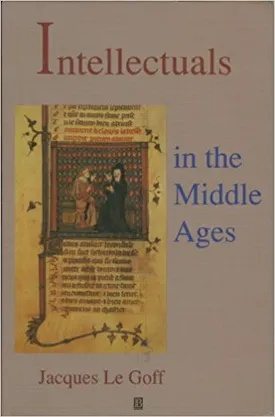Jacques Le Goff
Jacques Le Goff was one of France’s most influential medieval historians, whose work focused on the economic, social, political, religious, and cultural aspects of the Middle Ages. Born on 1 January 1924 in Toulon, France, Le Goff attended universities in Toulon, Paris, and Poitiers. He eventually taught medieval history at the University of Paris-Sorbonne and the prestigious Collège de France. His career spanned over five decades, during which he published numerous books and essays.
Le Goff’s most major works included Medieval Civilization, an expansive and valuable examination of the societal culture and traditions of medieval Europe. The book is divided into five parts, each of which focuses on a different aspect of community life. The first part, “Society and Beliefs,” examines elements of Christian thought, such as the cult of the Virgin Mary and monastic life. The second part emphasizes economics, including the commercial fairs of northern Italy and public markets in France. Part three covers the everyday life in medieval societies, the role of the clergy, and the rituals of death and burial. Part four covers the role of literature and art in medieval piety, as well as the visual arts. The fifth part, “Synthesis and Outcome,” investigates the medieval structures of law, medicine, and science.
Le Goff also wrote extensively about the Middle Ages in his 1970 book Time, Work, and Culture in the Middle Ages. He argued that the period prioritized the spiritual life and, as such, its daily practices were nothing like our current secular outlook where work and labor are paramount. He based his theories on scientific data from archeological sites, churches, and other sources. The book argued that, while work was indeed a necessary part of medieval life, it was done in service of the Church and religious ideals, and people ultimately valued leisure more than labor.
Le Goff was a vocal critic of the established historical theories that deemphasized the spiritual life of the Middle Ages. He argued that a richer, more complete version of history should focus on both the material and spiritual aspects of the medieval period, allowing us to gain a better understanding of the period. He also viewed the Middle Ages as a period of transition and creativity, providing a forum of comparative studies known as the “Mosaic Method.”
Le Goff also wrote extensively about death and commemoration in medieval Europe. He argued that when a person died, the entire community was affected. Not only did the funeral process provide a forum for death to be mourned and remembered, but it was also a time for contemplation and meditation regarding the changing life paths of those left behind. His works focused on how the dead could, and were, actively celebrated in ways that connected them to their communities.
In the course of his career, Le Goff was honored with numerous awards, including the Balzan Prize in 2004 and the Erasmus Prize in 2006. He died in 2014, leaving behind a vast and highly influential body of work. His writings revolutionized the neglected field of medieval history, introducing new and creative approaches to the study of the period, and changing the way we think about history as a whole.

